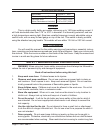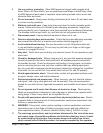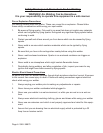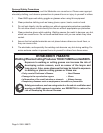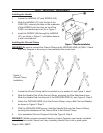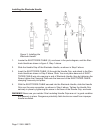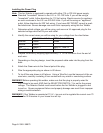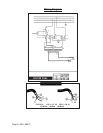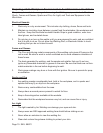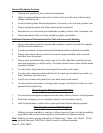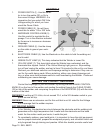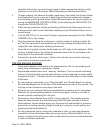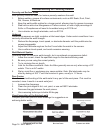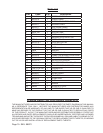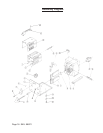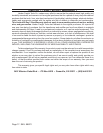
Page 11- SKU: 98870
General Workplace Cautions
Prepare and maintain a safe, uncluttered workplace.
Make sure the welding ground circuit is direct to the work. Be wary of hoist chains,
cables, scaffolding, etc.
Avoid contacting other electrical equipment in the area, such as hoists, grinders, etc.
Always unplug the power line before servicing this equipment.
Be aware of your surroundings and hazards caused by debris, tools, equipment, etc.
Always be aware of the risk of re caused by sparks and splatter.
Additional Equipment Recommended for Safe and Successful Welding
Always wear heavy protective gloves when welding, to protect yourself from sparks,
splatter and hot workpieces.
If welding overhead, always wear protective leather welder’s jacket and overalls.
Always wear sturdy shoes or boots for protection against splatter, and to provide
insulation from the ground.
Always wear a protective face shield, with UV and IR rated lters matching the pro-
cess and amperage you will be using. The helmet should have a clear splatter shield
to protect the lter.
You will need a slag hammer to chip slag off the surface of the weld.
You will need a stainless steel scratch brush for each type of material you weld, e.g..
Steel, Stainless, Aluminum, etc.
A skull cap or beanie will protect your hair while wearing the helmet.
You will need an assortment of locking pliers, clamps, and xtures to hold your work-
pieces for accurate joining.
Preparing the Workpiece for Welding
For successful welding the workpiece must be clean: free of corrosion, dirt and grease.
Test t the workpiece prior to welding to assure it will assemble properly.
Hold the workpieces in place with an appropriate and secure clamping system
Selecting the Correct Welding Rod
Welding rods are available in a variety of alloys, sizes and uxes for various welding
applications. Be sure you are using the correct welding rod before working.
Note: Welding rods are variously referred to as “Electrodes”, “Rods”, and “Sticks”. Do not
confuse these with “MIG Wire” which is used in a different process.
1.
2.
3.
4.
5.
6.
1.
2.
3.
4.
5.
6.
7.
8.
1.
2.
3.
1.



